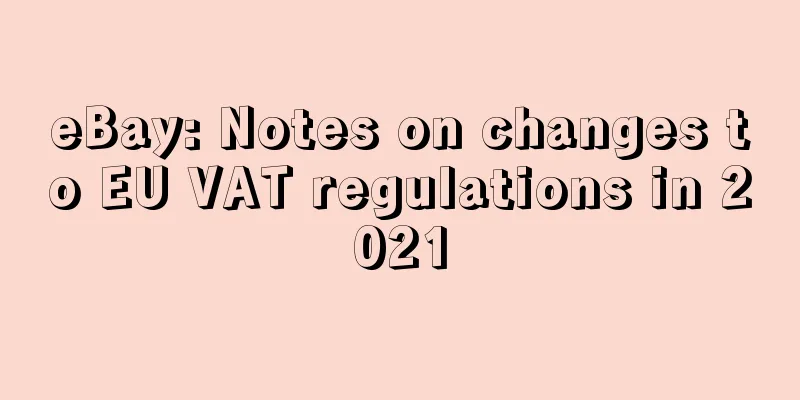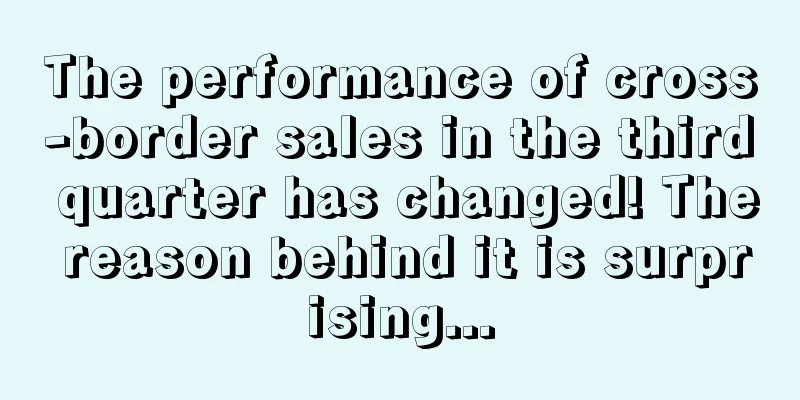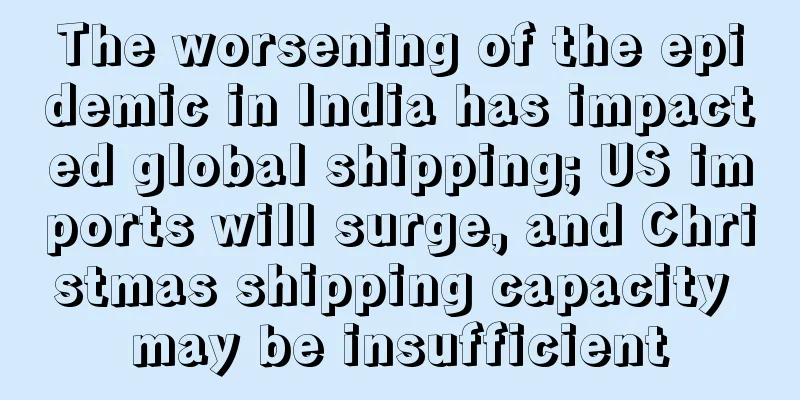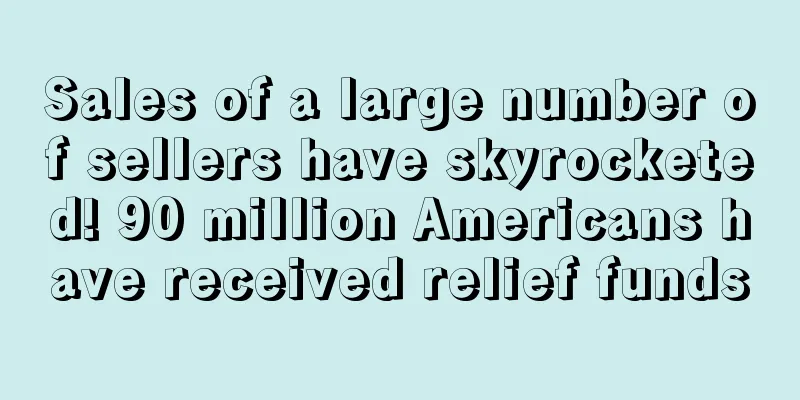eBay: Notes on changes to EU VAT regulations in 2021

|
On March 10, eBay China’s official website released an announcement entitled "Notice on Changes to EU VAT Regulations in 2021". The announcement stated that eBay had informed sellers in 2020 that from July 1, 2021, the VAT regulations for goods imported into the EU and some goods within the EU will change. eBay will collect and pay the EU VAT based on the seller’s location, the value of the goods and the location of the goods .
At the same time, eBay also requires all sellers to provide tax-inclusive prices and separate VAT rates in their listings so that eBay can determine the correct amount of VAT to be collected. Cross-border sellers should evaluate the impact of the above changes on their business and prepare for these changes. eBay will continue to update relevant announcements on this topic, so sellers are advised to stay tuned.
In addition, sellers need to know that the EU will cancel the current VAT exemption for low-value goods imported into the EU with a value of no more than 22 euros from July 1, 2021, and the distance sales threshold for cross-border sales within the EU will also be abolished on July 1, 2021.
After July 1, the EU will make significant changes to the way VAT is collected on goods imported into the EU, on sales of goods within the EU by non-EU sellers, and on cross-border sales of goods within the EU by EU sellers, including:
1. Cancel the provision that low-value ( less than 22 euros) imported goods are exempt from import VAT; 2. For goods imported into the EU and sold to EU consumers with a value not exceeding 150 euros, e-commerce platforms or customs declarants may withhold VAT; 3. For sellers from non-EU companies, if the goods have been pre-stored in the EU and sold to consumers in the EU or sold from one EU country to another, the e-commerce platform may collect and pay VAT on their behalf. The EU has very high compliance requirements, especially as the government deficit rose sharply in 2020 and the e-commerce industry developed rapidly. EU countries will also pay more attention to e-commerce VAT. Sellers are required to register for VAT as long as they use operations centers or overseas warehouses within the EU, sell goods to individual sellers in EU countries exceeding "remote sales", import goods to the EU, sell goods to corporate sellers in EU countries, and transport goods between operations centers in different countries. E-commerce platform eBay Platform VAT |
<<: AliExpress counterfeit products named in Spanish market
>>: South Korea's online food delivery market grew 79% in 2020
Recommend
French non-food prices soar, cheaper online channels attract attention
According to a comparative study by Le Dénicheur,...
Amazon is still popular! A large number of entrepreneurs will join the market in 2024
Competition on the Amazon platform remains fierce...
SHEIN is steadily expanding: semi-trusteeship is considered a long-term strategy, supporting more than 30 sub-categories
SHEIN's "semi-trusted" focus in the...
What is Teknihall? Teknihall Review, Features
Teknihall is an independent after-sales service pr...
Emergency! Blizzard blocks roads, 75 Amazon FBA warehouses closed
This week, the United States was hit by extremely...
Tens of thousands of Amazon packages are piled up during peak season
Cross-border logistics is lagging behind again! A...
Japan's Rakuten has become a "hot commodity", with many big sellers entering the market
Anker Innovations, a leading super seller in the ...
AliExpress semi-hosting service has been online for 100 days, and a large number of merchants have doubled their growth
AliExpress semi-hosting has been online for 100 d...
Target pledges $2 billion to support Black-owned businesses
In the past year, major companies like Walmart an...
Take it off the shelves! AMS is the agent of two new brands of toys and games
Take it off the shelves! AMS is the agent of two ...
What is StarShip? StarShip Review, Features
<span data-docs-delta="[[20,{"gallery"...
Nike enters the resale market with the launch of the Nike Refurbished program
Recently, sports footwear and apparel giant Nike ...
3.3 billion yuan in profit in 9 months! Dongguan's big sales helped it break through adversity
Due to the continued turbulence in the overseas e...
11 cross-border companies built 300 e-commerce websites and were shut down by the police
Cross-border e-commerce is becoming increasingly ...
What is autopumpkin? autopumpkin Review, Features
autopumpkin focuses on car entertainment. Since 20...









